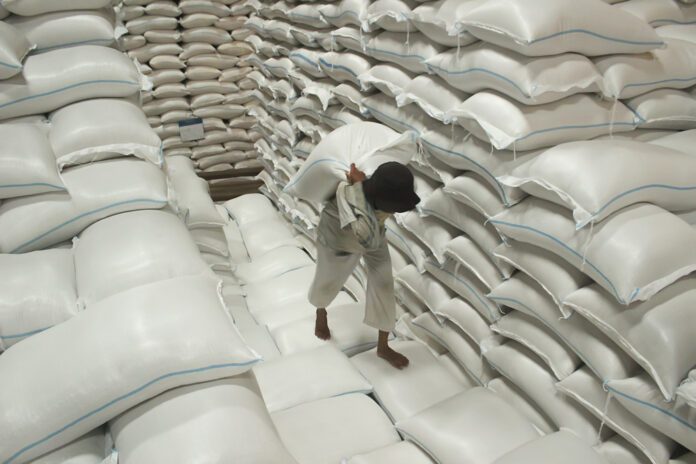The National Economic and Development Authority Board, the country’s highest economic policymaking body, on Thursday decided to keep tariff rates on imported rice, corn and pork at reduced levels to address supply and price challenges, including the threat of El Nino and the African swine fever.
Economic Planning Secretary Arsenio Balisacan said the reduced tariff rate will be kept until December 2024 unless changes are needed based on a review of the tariff on agricultural products scheduled every six months.
President Ferdinand Marcos Jr. in December last year issued Executive Order No. 10, which expires at the end of 2023, extended the reduced most favored nation tariff rates at 35 percent for rice, both for in-quota and out-quota imports; corn at 5 percent for in-quota and 15 percent for out-quota; while that on pork will stay at 15 percent for in-quota and 25 percent for out-quota.
“The extension of the reduced tariffs will help ensure an adequate supply of agricultural commodities and maintain stable and affordable prices, thereby better managing potential inflationary pressures,” Balisacan told a news conference to discuss matters decided on by the NEDA Board, which is chaired by President Marcos.
Inflationary pressure has eased in the last couple of months but remains outside the 2 percent to 4 percent target range of the Bangko Sentral ng Pilipinas.
“We will also be able to encourage alternative supply to diversify the country’s market sources and establish a forward-looking trade policy that will allow effective and timely response for possible supply and price shocks brought about by major challenges such as the worsening ASF, anticipated impact of the El Nino phenomenon, and continuous increases in commodity prices in the world market,” Balisacan added.
By keeping tariffs low, Balisacan said, the government will be able to temper the impact on local consumers of the rising cost of imported farm products, especially rice due to the import ban imposed by India and the drought that will likely be brought by the El Nino. He said if EO 10 is allowed to lapse, consumers will be hit by the double whammy caused by high commodity prices abroad and higher tariff rate.
He pointed out that with rice prices still elevated in the world market, local price of the grain would even be higher if import tariff are allowed to increase to the previous 50 percent from the current 35 percent.
“We are preparing for the worst. We know from the data presented to us….that the worst (impact of El Nino) will possibly come in April and May when many of our provinces may experience droughts and dry spell,” he said.
The tariff on corn was also kept low because it accounts for more than 50 percent of the total production cost of large broiler and swine farms.







